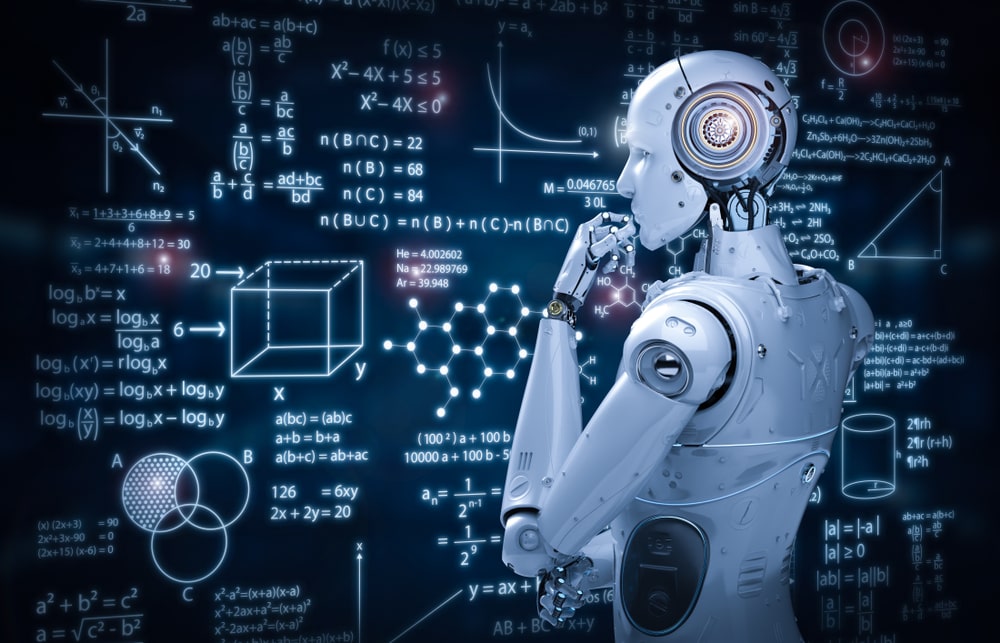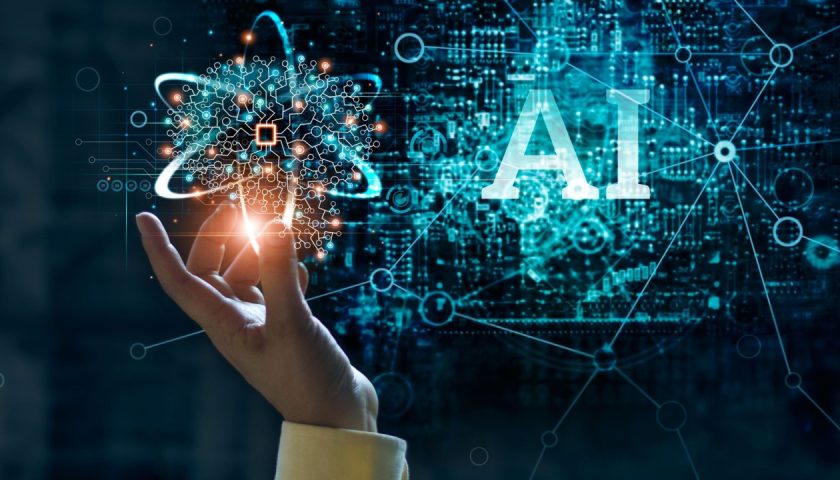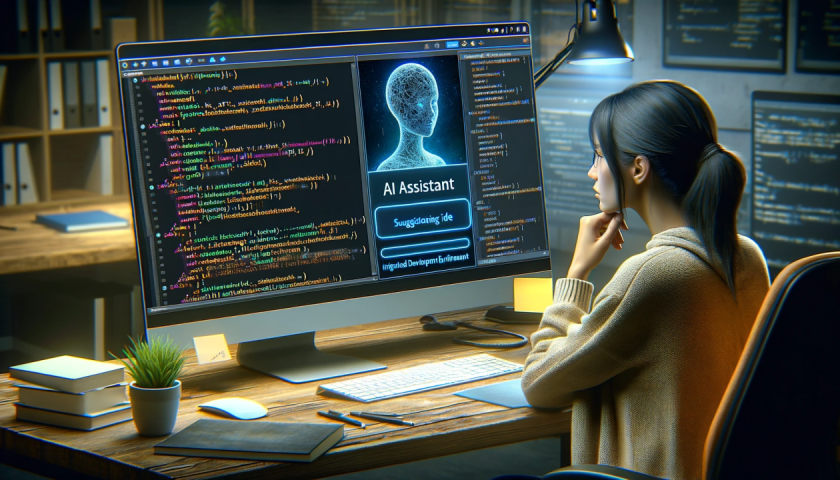Decoding Artificial Intelligence: Unveiling Its Evolution, Impact, and Ethical Landscape
By: Javid Amin
In the realm of modern technology, one term stands out as both ubiquitous and enigmatic: artificial intelligence (AI). Once relegated to the realm of science fiction, AI has transcended its fictional origins to become an integral part of our daily lives. From virtual assistants to personalized recommendations, the influence of AI is undeniable. Yet, despite its pervasiveness, AI remains a complex and often misunderstood concept. This article endeavors to demystify AI, offering a comprehensive exploration of its evolution, applications, and ethical implications.
A Journey Through Time: Tracing the Evolution of AI
The origins of AI can be traced back to ancient myths and philosophical inquiries into the nature of intelligence. However, it was not until the mid-20th century that AI emerged as a distinct field of study. Pioneering figures like Alan Turing and John McCarthy laid the groundwork for modern AI, envisioning machines capable of exhibiting human-like intelligence. The subsequent decades saw both breakthroughs and setbacks, with periods of rapid progress punctuated by periods of stagnation known as “AI winters.” However, with the advent of powerful computers and sophisticated algorithms, AI experienced a resurgence in the 21st century, ushering in an era of unprecedented innovation and discovery.
Unveiling the Mechanisms of Intelligence: Exploring the Core Concepts of AI
At its core, AI is the science of creating intelligent machines that can mimic human cognitive functions. This encompasses a wide range of capabilities, from problem-solving and decision-making to natural language processing and computer vision. Central to the field of AI are two key types of intelligence:
- Artificial Narrow Intelligence (ANI): ANI refers to AI systems that excel at performing specific tasks with a high degree of proficiency. These systems are highly specialized and lack the general intelligence of humans. Examples include facial recognition software, recommendation algorithms, and virtual assistants like Siri and Alexa.
- Artificial General Intelligence (AGI): AGI, often referred to as “strong AI,” represents the theoretical pinnacle of AI development. AGI would possess human-level intelligence and be capable of learning and adapting to any situation. While AGI remains a distant goal, researchers continue to explore avenues for achieving this level of intelligence.
Unraveling the Mysteries of Machine Learning and Deep Learning
At the heart of AI are the algorithms and techniques that enable machines to learn from data and make decisions. Two key approaches in this regard are machine learning and deep learning:
- Machine Learning: Machine learning involves training algorithms on large datasets and allowing them to learn patterns and relationships from the data. These algorithms can then make predictions or classifications on new data based on their learned knowledge. Machine learning has applications in various domains, including image recognition, natural language processing, and predictive analytics.
- Deep Learning: Deep learning is a subset of machine learning that utilizes artificial neural networks to model complex patterns in data. Inspired by the structure and function of the human brain, deep neural networks consist of interconnected layers of nodes that process information hierarchically. Deep learning has achieved remarkable success in tasks such as image and speech recognition, driving advancements in AI-powered technologies.
AI in Action: Transforming Industries and Reshaping Society
The impact of AI extends across diverse sectors, revolutionizing processes and redefining the way we live and work. Here are some notable examples of AI applications:
- Healthcare: AI is enhancing medical diagnosis and treatment planning, enabling early disease detection and personalized care. From medical imaging analysis to drug discovery, AI holds immense promise for improving healthcare outcomes and reducing costs.
- Finance: AI algorithms are employed in fraud detection, risk assessment, and algorithmic trading, driving efficiency and accuracy in financial markets. By analyzing vast amounts of data in real-time, AI systems can identify patterns and anomalies that human analysts may overlook.
- Transportation: Self-driving cars, powered by AI and machine learning, have the potential to revolutionize transportation and urban mobility. AI enables these vehicles to navigate roads autonomously, anticipate traffic patterns, and avoid accidents, promising safer and more efficient transportation systems.
- Manufacturing: AI-driven automation is transforming manufacturing processes, optimizing production lines, and enhancing quality control. By leveraging AI for predictive maintenance and demand forecasting, manufacturers can minimize downtime and maximize productivity.
- Customer Service: AI-powered chatbots and virtual assistants are increasingly used to provide personalized customer service and support. These intelligent systems can respond to inquiries, troubleshoot issues, and handle routine tasks, improving efficiency and customer satisfaction.
Navigating the Ethical Terrain: Addressing Challenges and Concerns
Despite its transformative potential, AI presents a range of ethical challenges and societal implications. Key areas of concern include:
- Bias and Fairness: AI systems trained on biased data may perpetuate existing inequalities and discrimination. It is essential to ensure fairness and equity in AI algorithms to mitigate the risk of biased outcomes.
- Job Displacement: The automation of tasks by AI systems may lead to job displacement in certain industries. Efforts are needed to reskill and retrain workers for the jobs of the future, fostering a smooth transition to an AI-driven economy.
- Privacy and Data Protection: AI applications often rely on vast amounts of personal data, raising concerns about privacy and data security. Robust regulations and safeguards are necessary to protect individuals’ privacy rights and prevent unauthorized use of personal data.
- Transparency and Accountability: The complexity of AI algorithms can make it challenging to understand and interpret their decisions. Establishing mechanisms for transparency and accountability is essential to ensure that AI systems are trustworthy and accountable to human oversight.
Charting a Course for the Future: Embracing Responsible AI Development
As we navigate the complex terrain of AI, it is essential to prioritize responsible development and deployment practices. This requires a collaborative effort involving researchers, policymakers, industry stakeholders, and the public. Key strategies for promoting responsible AI development include:
- Ethical Frameworks: Establishing ethical guidelines and principles for AI development and deployment, with a focus on fairness, transparency, accountability, and human-centric design.
- Regulation and Oversight: Implementing robust regulatory frameworks to govern the development and deployment of AI technologies, safeguarding against potential risks and ensuring compliance with ethical standards.
- Education and Awareness: Promoting public awareness and understanding of AI, its capabilities, and its societal implications through education, outreach, and public engagement initiatives.
- International Collaboration: Fostering collaboration and cooperation among nations to address global challenges related to AI, including ethical standards, data governance, and international norms.
In conclusion, artificial intelligence represents a transformative force with the potential to shape the future of humanity. By embracing responsible development practices and addressing ethical considerations, we can harness the power of AI to drive innovation, enhance human well-being, and create a more equitable and sustainable world for generations to come. As we embark on this journey, let us remain vigilant, proactive, and committed to ensuring that AI serves the greater good, enriching our lives and expanding the boundaries of human knowledge and achievement.






